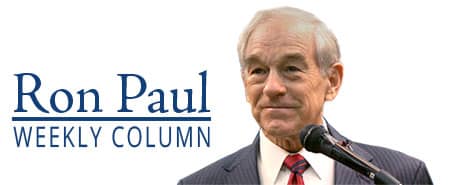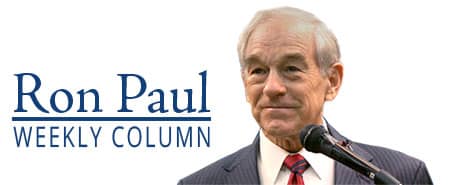
Last week, the House of Representatives voted in favor of a Labor, Health and Human Services, and Education appropriations bill amendment to repeal the prohibition on the use of federal funds to create a “unique patient identifier.” Unless this prohibition, which I originally sponsored in 1998, is reinstated, the federal government will have the authority to assign every American a medical ID. This ID will be used to store and track every American’s medical history.
A unique patient identifier would allow federal bureaucrats and government-favored special interests to access health information simply by entering an individual’s unique patient ID into a database. This system would also facilitate the collection of health information without a warrant by surveillance state operatives.
The health records database could easily be linked to other similar databases, such as those containing gun purchase records or education records. If mandatory E-Verify becomes law, the health records database could even be linked to it, allowing employers to examine a potential employee’s medical history.
The possibility that the unique patient identifier system may be linked to a database containing information regarding gun ownership is especially disturbing given the bipartisan support for “red flag” laws. These laws allow the government to deny respect for someone’s Second Amendment rights without due process and based solely on an allegation that the individual is mentally unstable and likely to commit an act of gun violence. Combining red flag laws with the unique patient identifier system would leave a gun owner who ever sought psychiatric help for any reason at risk of losing his ability to legally possess a gun.
Unscrupulous government officials could use medical information to harass those whose political activities challenge the status quo. Anyone who doubts this should ask themselves what a future J. Edgar Hoover or Lois Lerner would do with access to the medical information of those involved in political movements he wishes to silence.
The unique patient identifier undermines one of the foundations of quality health care: the doctor-patient relationship. Accurate diagnosis requires that patients share intimate details about their lives — ranging from details about their diet and exercise habits to their sexual history and alcohol and drug use — with their physicians. If patients legitimately fear information shared will be compromised, they will be unwilling to be completely honest with their physicians, making it impossible for physicians to effectively treat their patients.
Proponents of the unique patient identifier claim it will improve efficiency. But, in a free society, the government should never endanger privacy or liberty for efficiency. Besides, when has any government intervention in health care ever improved efficiency or increased patients’ or health care providers’ satisfaction with the system?
The unique patient identifier system puts the desires of government bureaucrats and politically powerful special interests ahead of the needs of individual patients and health care providers. Instead of further intervening in health care and further destroying our privacy and our liberties, Congress should give patients control over their health care by giving them control over health care dollars through expanding access to Health Savings Accounts and health care tax credits. In a free market, patients and doctors can and will work tighter to ensure patients’ records are maintained in a manner that provides maximum efficiency without endangering privacy or liberty.

